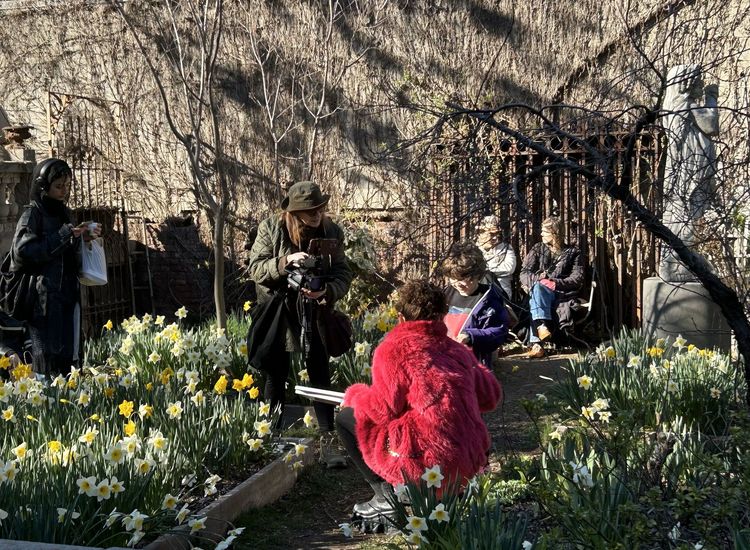By Orla O'Sullivan
Musicals can be irritating, their manufactured emotion unbearably phony. Larry Kirwan’s "Hard Times," however, is not just the best of the genre I've seen, but truly affecting.
The rest of the audience was also demonstrably moved at one of the extra performances laid on during the show's largely sold-out run through Sunday as part of the 1st Irish Theater Festival.
As the musical ended, it transformed from your typical theater experience to a "seisiún." Switching from spectators to participants, the audience clapped to the beat of the last song. So in synch with the performers were they that when individual actors performed solos within that final number the crowd automatically self-modulated to a slower clap less likely to drown out the singer.
Will it sustain such involvement if-or more likely when-"Hard Times" moves to Broadway and not the intimate West 23rd Street venue, the Cell?
This is the story of the hard birth of the modern U.S., told mostly through the songs of Stephen Foster, whose famous compositions include "Hard Times Come Again No More."
Kirwan provides others, such as "Five Points," the rough area in lower Manhattan where the immigrant Irish and free blacks amongst others collided in July 1863. Ethnic tensions surged in the Draft Riots as poorer men, such as newly arrived Irish, were drawn to help the Union side win the Civil War--which many resented as an effort to free southern slaves.
Kirwan takes some poetic license as he writes the characters in a bar on the notorious Bowery where the action unfolds. Their relationships parallel American society breaking free of old strictures. Pivotal characters are the bar owner, free slave Nelly Bly (Almeria Campbell); Irishman Owen Duignan (John Charles McLaughlin) who works for her; and composer Stephen Foster (Jed Peterson), who lived locally.
All elements are well done, from the powerful singing, dancing and acting to the simple set with its tattered version of an emergent U.S. flag, and choreography that visually created five points in a new, Irish set-dance combination for the "Five Points" number.








